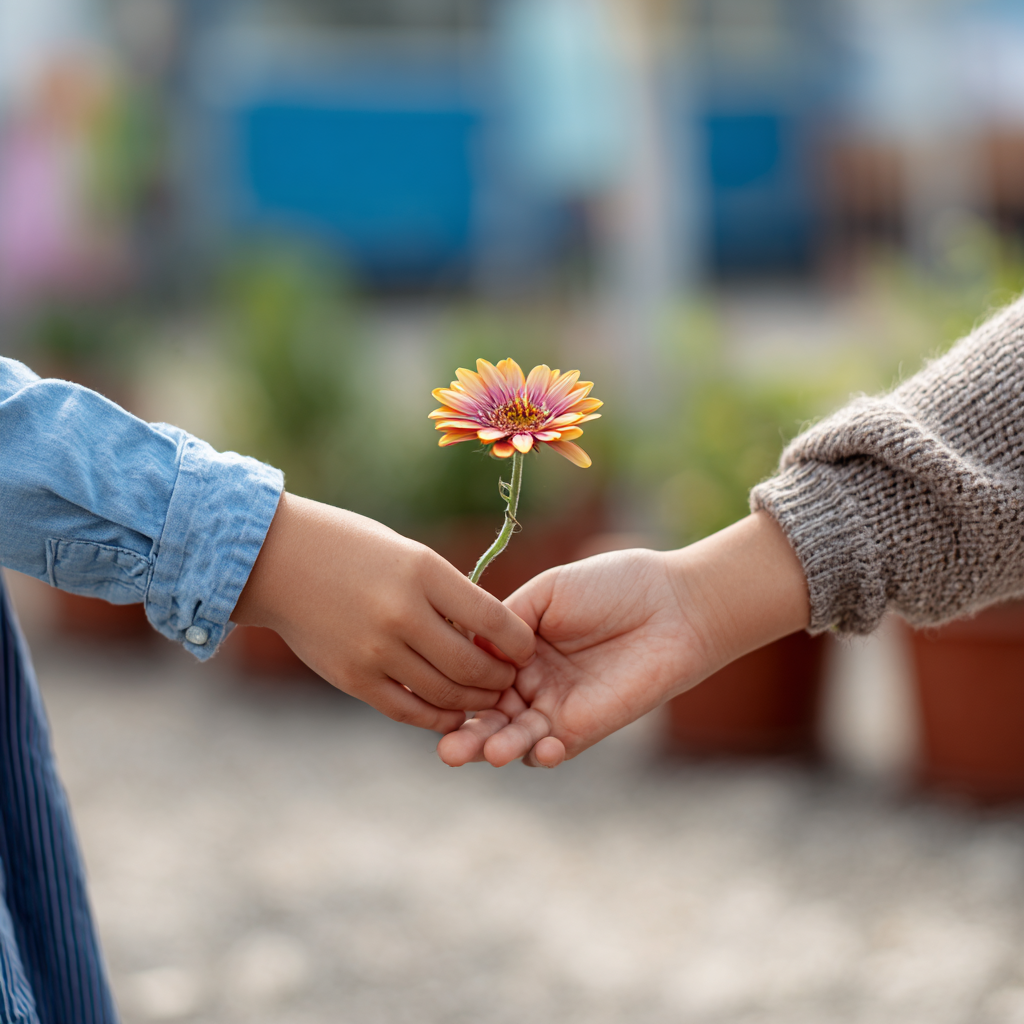In a world that often feels fast-paced and unpredictable, nurturing kindness in children has never been more important. Encouraging positive behavior isn’t just about teaching good manners—it’s about helping little hearts grow with empathy, compassion, and respect for others. As parents, caregivers, and educators, we hold a special power to shape how children view themselves and the world around them. In this article, we’ll explore gentle, meaningful ways to encourage kindness, creating a foundation that not only helps kids thrive today but shapes the thoughtful adults they will become tomorrow. Let’s journey together into the delicate art of nurturing kindness—one small, caring step at a time.
Table of Contents
- Understanding the Foundations of Kindness in Childhood
- Creating a Supportive Environment that Models Empathy
- Practical Strategies to Reinforce Positive Social Behaviors
- Encouraging Emotional Awareness Through Thoughtful Communication
- Concluding Remarks
Understanding the Foundations of Kindness in Childhood
At the heart of positive behavior lies a deep-rooted emotional soil where empathy and understanding are carefully planted. Children learn kindness not only through what adults say but more importantly through what they consistently witness. The daily expressions of compassion, patience, and respect modeled by caregivers create a silent curriculum that speaks louder than any lecture. When children see kindness become an integral part of family life, it becomes second nature for them to extend that warmth to others. This process develops brain pathways associated with social connection and emotional regulation, making kindness an innate response rather than an occasional act.
Building these foundations involves intentional nurturing that can be woven seamlessly into everyday moments. Some effective ways to cultivate kindness include:
- Encouraging perspective-taking: Prompt children to consider how others feel in various situations.
- Celebrating small acts: Highlight and praise moments when your child shares or shows compassion.
- Creating opportunities for cooperation: Facilitate group activities or chores that require teamwork and mutual support.
- Reading stories about kindness: Use books to spark discussions and reinforce positive values.
These gentle strategies help transform kindness from an abstract concept into practical, everyday behavior that blossoms throughout childhood and beyond.
Creating a Supportive Environment that Models Empathy
Children learn far more from what they observe than from what they are told. Creating an atmosphere where compassion and understanding are actively demonstrated helps young minds grasp the true meaning of empathy. This means showing genuine interest in others’ feelings, validating their experiences, and responding thoughtfully — whether it’s with a kind word or a helping hand. Parents and caregivers can reinforce this by maintaining open, patient communication, and by handling conflicts with calmness and respect. Such consistent modeling lays the foundation for children to mirror these positive behaviors naturally.
To cultivate this environment, consider weaving simple yet powerful practices into daily life, such as:
- Active listening: Make eye contact, nod in understanding, and repeat back what your child shares to show they are truly heard.
- Expressing gratitude: Regularly express thanks for small acts, encouraging children to notice kindness in themselves and others.
- Role-playing scenarios: Use stories or games to explore different perspectives and emotions.
By nurturing these habits, you not only enhance emotional intelligence but also create a safe haven where kindness and empathy can flourish freely.
Practical Strategies to Reinforce Positive Social Behaviors
One of the most effective ways to nurture kindness in children is through consistent modeling of positive social behaviors. When kids observe adults demonstrating empathy, patience, and respectful communication, they begin to mirror these actions naturally. It helps to verbally acknowledge these behaviors in everyday interactions, for instance, by praising a child who shares a toy or helps a sibling. Reinforcement through positive attention often motivates children to repeat such actions, gradually building a foundation of genuine kindness.
Creating simple, engaging routines that encourage collaborative play and problem-solving can further promote pro-social skills. Consider incorporating activities that emphasize teamwork, such as group games or family projects, where cooperation is necessary. Additionally, using structured but flexible strategies like:
- Clear expectations: Communicate the behaviors you want to see clearly and consistently.
- Role-playing: Allow children to practice kindness in controlled, imaginative scenarios.
- Storytelling: Read books or share stories highlighting empathy and compassion.
These approaches empower kids to recognize the impact of their actions on others, fostering a heartfelt commitment to kindness that extends beyond the home.
Encouraging Emotional Awareness Through Thoughtful Communication
Creating an environment where children feel safe to express their feelings is key to fostering emotional growth. When adults engage in conversations that validate a child’s emotions—whether they are joy, frustration, or sadness—it teaches children that their feelings matter. This validation can be as simple as saying, “I see you’re upset, and it’s okay to feel that way,” which opens the door to deeper understanding and self-awareness. Encouraging kids to name their emotions not only helps them develop a rich emotional vocabulary but also builds empathy as they begin to recognize emotional cues in others.
Thoughtful communication means actively listening and responding with patience and kindness. Instead of dismissing or immediately correcting difficult behaviors, try gently probing with questions like:
- “What happened that made you feel this way?”
- “Can you tell me more about what you’re thinking?”
- “How do you think we can make this better?”
This approach encourages kids to reflect on their own experiences and promotes problem-solving skills. Over time, children learn that open, honest dialogue is not just safe but also a powerful tool for managing emotions and fostering positive interactions with others.
Concluding Remarks
As we journey through the beautiful challenge of raising kind-hearted children, it’s important to remember that nurturing kindness is a continuous, gentle process. Every small act of empathy, every patient conversation, and every encouraging word plants seeds of positivity that grow far beyond the moments we see. By creating environments filled with love, understanding, and compassion, we not only help our kids develop positive behaviors but also inspire them to become caring individuals who can make a real difference in the world. So let’s keep nurturing kindness—one smile, one story, one lesson at a time—and watch as it blossoms into something truly extraordinary.
Related Products
-
Sale!
OGX Renewing + Argan Oil of Morocco, Cold-Pressed …
Beauty Original price was: $10.69.$7.97Current price is: $7.97. -
Raise Them Well Mom Multi+ Daily Multivitamin for …
Mom $27.99 -
Sale!
Men’s Bomber Jacket Fashion Stylish Lightweight Wi…
Clothing Original price was: $39.99.$32.99Current price is: $32.99.







